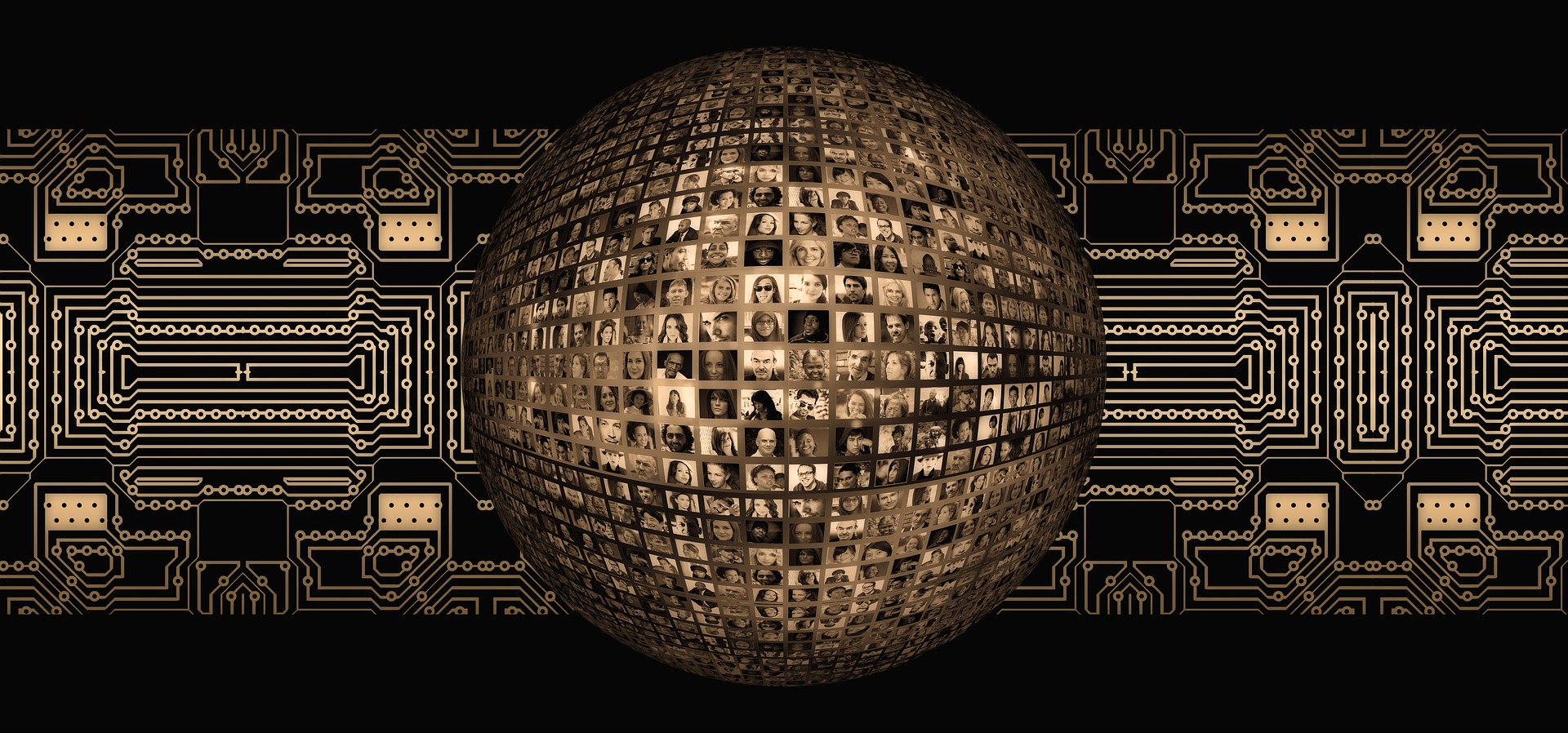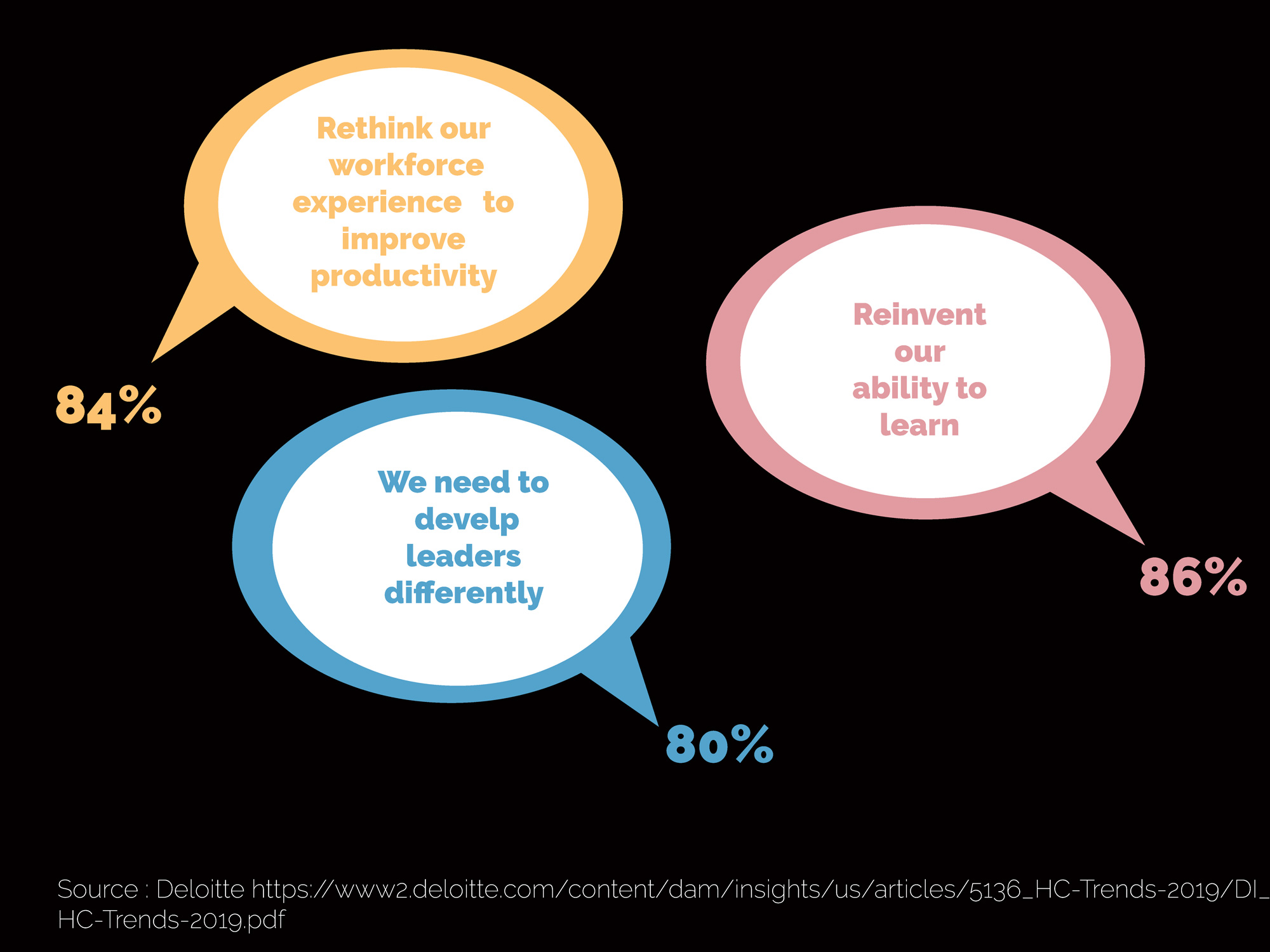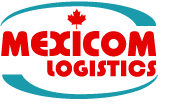Are you adapting to the new workforce trends?
The technological, economic and social changes of this era have catalyzed the transformation of the companies that are being capable of adapting themselves to a changing environment that is far from the management styles that were seen only a decade ago. It is increasingly common to observe a more social and human approach in companies. Managers are concerned not only with the profitability of the business but also with their role and social responsibility towards the well-being of their employees and the stakeholders involved in their business models. This generates higher productivity, stability and profitability in turn.
This year, the annual Global Human Capital Trends 2019 report, prepared by Deloitte, highlights the great importance of the social enterprise. The report is entitled “Leading the social enterprise: Reinvent with human focus”. The report reflects the perceptions of more than 10,000 professionals from 119 countries in terms of trends that shape organizations and the workforce.
What is a social enterprise?
Deloitte defines the social enterprise as “an organization whose mission combines revenue growth and profit-making with the need to respect and support its environment and stakeholder network. This includes listening to, investing in, and actively managing the trends that are shaping today’s world “. In this way, the organization serves as an example, a model to follow.

Some key results of the Deloitte report:
- 86 percent of people believe that they need to reinvent their ability to learn.
- 84 percent think they need to rethink their human resources experience to increase productivity.
- 80 percent believe that they should develop leaders in a different way.

5 workforce trends
The Deloitte report summarizes trends that have been brewing in the workforce for the last years and that today take on greater importance to shape the business and economic dynamics. Below we present 5 of these trends showed in the report plus complementary information from other studies and articles.
More freelancers and gig workers
The role of full-time workers is leaving room for new types of work arrangements, such as freelancers and gig workers. This type of work that was previously considered “alternative” is increasingly becoming a trend. Along with this, the people working from home is increasing every year.
It is predicted that freelancers will constitute the majority of the workforce in the next decade in the United States, according to Upwork’s Future Workforce Report. In addition, the same report points out that 59% of the companies in that country already make use of the flexible workforce, made up of freelancers and remote workers.

The creation of superjobs
The technological advances that have been integrated into the daily reality of companies, such as automation, robotics, cognitive technologies, and Artificial Intelligence, add new perspectives to the way in which processes are carried out. In the same way, they redefine the activities of employees and their jobs to evolve from traditional jobs to what we now call superjobs.
What is a superjob? They are labor roles that incorporate the use of technology and combine the work and responsibilities of multiple traditional jobs to increase the scope of the work done. These works involve a set of more complex human and technical skills

The ideal leaders: the sweet balance between the traditional and the new
Today’s leaders face unprecedented challenges that force them to develop an unprecedented set of skills. They need to be able to meet the traditional objectives of companies in a new and changing context. The new skills include the ability to adapt to change and to carry out their leadership in ambiguous and uncertain environments while being able to adopt, understand and integrate the technological changes that are catalyzing the evolution of companies.
For Dominique Turpin, President of IMD and Nestlé, the qualities that a leader must have to overcome the unpredictability of today’s world are:
- Thinking on a large scale, anticipating changes in the competitive environment.
- Innovating in a broad sense and in all processes of the business model.
- Acquiring diversity, taking advantage of the different mindsets working in the same team.
- Communication, communication, communication. Having different models and styles to improve communication globally. Adapt the leadership style: trust instead of authority, networking instead of hierarchy, inspiration instead of decision making, self-awareness instead of power.

More than employees: humans.
84% of the respondents in the Deloitte’s report noted that improving the “employee experience” was important and 28% said it was urgent. The report explains how the concept of “employee experience” falls short in today’s context and evolves to acquire a more human sense, which is why the term “human experience” in the work environment is now relevant. This implies the understanding of the impact of work not only within the organization but within society.
To understand the aspirations of human beings who are part of the labor force and to support their personal and professional development will improve the impact of their work within the organization and in society.

The “war for talent”
In a context in which organizations are the protagonists of a fierce competition for talent, the most viable alternative is to train the home talent and encourage their growth and mobility within the organization. Do not let them go. Some of the strategies that companies can follow to retain talent are:
- Giving mobility and flexibility to employees: The work from 9am to 5pm and working from office are things of the past.
- Providing constructive criticism and rewarding good performance.
- Investing in technological tools and technological training to face the digital age.
- Providing opportunities for professional development and continuous training.
Sources:
Click to access DI_HC-Trends-2019.pdf
https://www.upwork.com/i/future-workforce/fw/2018/
https://www.forbes.com/sites/abdullahimuhammed/2018/12/28/5-predictions-for-the-gig-economy-and-freelancing-in-2019/#6c73b3589001
https://www.imd.org/research-knowledge/articles/top-leadership-qualities-in-todays-unpredictable-world/
https://www.entrepreneur.com/article/284126









